Контроль умінь читання, аудіювання, говоріння та письма старшокласників з англійської мови
Управління освіти, науки та молоді
Волинської облдержадміністрації
Княгининівський ліцей Волинської обласної ради
Омельчук О. Р.
Контроль умінь читання, аудіювання, говоріння та
письма старшокласників з англійської мови
Збірник вправ
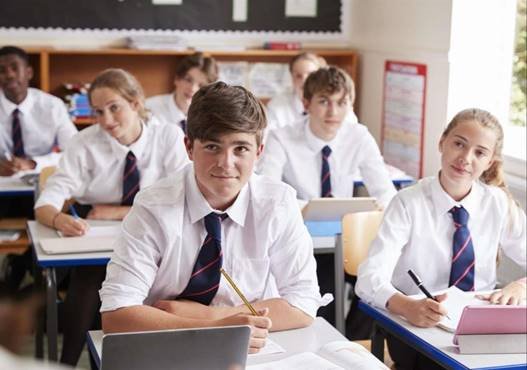
2021 р.
У збірнику подано завдання для проведення семестрового контролю умінь та навичок читання, письма, аудіювання та говоріння у 9-11 класах з англійської мови. Збірник вправ призначений для вчителів англійської мови закладів загальної середньої освіти.
Рекомендовано методичною радою Княгининівського ліцею (протокол № 5 від 08.02.2021 р.) для розгляду на науково-методичній раді Волинського інституту післядипломної педагогічної освіти (протокол № від
ББББББББ2021 р.)
Рецензенти:
Лисакова Л. П. – заступник директора, вища категорія, вчитель-методист
Галапчук-Тарнавська О.М. – доцент кафедри англійської філології Східноєвропейського національного університету ім. Лесі Українки, куратор наукового товариства студентів і аспірантів СНУ;
Укладач:
Омельчук О. Р. – учитель англійської мови, спеціаліст вищої категорії, «старший вчитель».
Збірник вправ «Контроль умінь читання, аудіювання, говоріння та письма старшокласників» / автор-укладач Омельчук О. Р. – Луцьк : Вежа-Друк, 2021.–57c.
Content
Introduction ......................................................................... 4
І. Reading Comprehension Tasks....................................... 6
Task 1. Physical exercises .............................................. 7
Task 2. California Strawberry Festival.......................... 9
Task 3. Fish and Chips.................................................... 11
Task 4. Snowstorm.......................................................... 13
ІІ. Listening Comprehension Tasks .................................... 16
Task 1. Sue Bailey .......................................................... 17
Task 2. The Christmas Man............................................ 22
Task 3. The Practical Princess....................................... 26
Task 4. Memories of Christmas ..................................... 29
ІІІ. Grammar Tasks............................................................... 33
Present Tenses................................................................ 34
Past Tenses ..................................................................... 38
Future Tenses.................................................................. 43
Conditionals.................................................................... 45
Infinitive/Gerund............................................................. 47
ІV. Speaking Tasks............................................................... 50
Animals Conversation Questions.................................... 51
Beauty Conversation Questions...................................... 51
Education Conversation Questions................................. 52
Entertainment Conversation Questions.......................... 53
Emergency Conversation Questions............................... 54
Science & Religion Conversation Questions.................. 54
Summary............................................................................... 56
References............................................................................. 57

Introduction
Today, changing learning conditions require teachers to use more effective techniques and methods to monitor and evaluate students’ knowledge, skills and abilities.
Monitoring and assessment of students’ knowledge, skills and abilities is an integral structural component of the learning process. Assessment is, on the one hand, the final component of mastering a certain content, and on the other - a kind of link in the system of educational activities of the individual.
With the correct organization of the educational process, assessment promotes the development of memory, thinking and language skills of students, systematizes their knowledge, timely detects miscalculations of the educational process and serves to prevent them. Well-organized assessment of students’ knowledge contributes to the democratization of the educational process, its intensification and differentiation of learning. It helps the teacher to get objective information (feedback) about the progress of students’ learning activities.
Assessment of students’ knowledge helps to determine the level and quality of learning, identify learning achievements, gaps in knowledge, skills and abilities of individual students and the whole class to make the necessary adjustments in the learning process. The aim of this book is to help teachers improve content, methods, tools and forms of assessment.
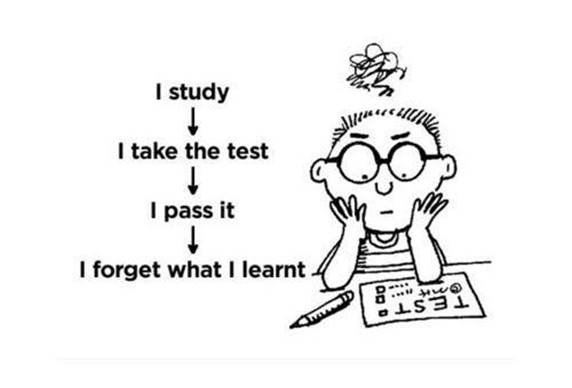
I. READING COMPREHENSION TASKS
The formation of skills and abilities in reading is one of the most important components in the process of learning a foreign language at all stages. Reading refers to the receptive types of speech activity, and is part of the communicative and social activities of people and it provides a written form of communication. Teaching to read in a foreign language is one of the practical tasks of a teacher in a secondary school. According to the state standard, students must learn to read simple authentic texts of different nature and type.
Assessment of reading skills should be done according to the communicative task, type of reading, the nature of the text. Such assessment can be done with traditional and programmable methods.
Traditional methods of control include:
• translation (full or partial) in the native language;
• presentation of content in native or foreign language;
• answers to questions to the text;
• composing questions on the content of the text;
• writing a summary of the text, etc.
The disadvantage is that these tasks are performed in writing and it takes much time. To a large extent, this can be compensated with programmable control methods, which include test methods.
Typically, these are recognition tests that are based on how the answers are chosen and divided into the following types:
• multiple choice tests;
• tests of alternative choice (two answer options or True / False statements)
• cross - selection tests (in two parallel columns provide words (phrases) that need to be agreed with each other);
• tests with a freely constructed answer (tests without answer options, which students give independently (at the level of words, phrases or text in general).
Task 1. Read the text and choose the best answer (a–d) to complete the sentences (1–4).
PHYSICAL EXERCISES
People need to be active to be healthy. Our modern lifestyle and all the conveniences we’ve become used to have made us sedentary – and that’s dangerous for our health.
Sitting around in front of the TV or the computer, riding in the car for even a short trip to the store and using elevators instead of stairs or ramps all contribute to our inactivity. Physical inactivity is as dangerous to our health as smoking!
Add up your activities during the day in periods of at least 10 minutes each. Start slowly... and build up. If you’re already doing some light activities move up to more moderate ones. A little is good, but more is better if you want to achieve health benefits. Scientists say accumulate 60 minutes of physical activity every day to stay healthy or improve your health. Time needed depends on effort – as you progress to moderate activities, you can cut down to thirty minutes, four days a week. Physical activity doesn’t have to be very hard to improve your health. This goal can be reached by building physical activities into your daily routine. Just add up in periods of at least ten minutes each throughout the day. After three months of regular physical activity, you will notice a difference – people often say getting started is the hardest part.
(From Handbook for Canada’s Physical Activity Guide to Healthy Active Living)
1. Nowadays people ...
a) are less active than in the past.
b) do more exercises than in the past.
c) are as sedentary as they used to be.
d) spend much time in the gym.
2. Time needed for physical activity depends on ...
a) health
b) effort
c) money
d) person’s character
3. You can improve your health ...
a) 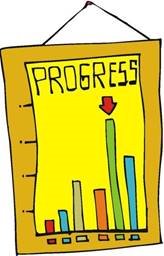 integrating physical activity into your timetable.
integrating physical activity into your timetable.
b) eating less and less during short periods of time.
c) relaxing and keeping cool.
d) working as hard as possible.
4. People say that ...
a) getting into physical activity is the most difficult part.
b) they do not have time for physical activity.
c) getting into physical activity is not so difficult.
d) they get enough physical activity.
Task 2. Read the text and choose the best answer (a–d) to complete the sentences (1–4).
CALIFORNIA STRAWBERRY FESTIVAL
Have you ever tried a strawberry pizza? If you went to Oxnard, the “Strawberry Capital of California,” in May, you could! Oxnard is in Southern California and this part of the state takes its strawberries very seriously. At the twoday California Strawberry Festival you can see and try strawberries prepared in all sorts of ways. In addition to traditional treats such as strawberry shortcake, strawberry jam, strawberry tarts and strawberries dipped in chocolate, there is strawberry pizza! This dessert pizza is topped with strawberries, sour cream, cream cheese and whipped cream on sweet bread baked like a pizza. Straw-berry kеbabs dipped in powdered sugar are another delicacy. And drinks such as a strawberry smoothie can wash it all down.
Strawberries are big business in Oxnard. The annual strawberry revenues are $100 million from Oxnard’s bountiful 6,600 berry acres. Twentyfour companies harvest and cool nearly 16 million trays of berries, which are shipped throughout North America as well as to Germany and Japan. The festival, which attracts more than 85,000 visitors, features three stages with musical entertainment, 335 arts and crafts exhibits, strolling musicians, clowns, artists, facepainting, contests, and a “Strawberry land” for children with puppets, magicians, musicians, and a pet zoo.
1. Which food is not mentioned in the article?
a) Strawberry shortcake
b) Strawberry candy
c) Strawberry jam
d) Strawberry pizza
2. What are the annual revenues from strawberries?
a) $100 million
b) $85,000 million
c) $335 million
d) 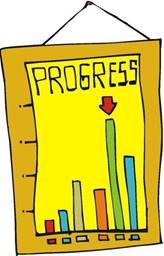 $16 million
$16 million
3. Who is the target audience of “Strawberry land”?
a) adolescents
b) children
c) young adults
d) the elderly
4. What attractions are available for the visitors?
a) arts and crafts exhibits
b) strolling musicians, clowns, artists
c) facepainting, contests
d) all of the above
Task 3. Read the text and decide if the statements are t(true) or F (False).
FISH AND CHIPS
“Fish and chips” is deepfried fish in batter with deepfried potatoes, and a popular takeaway food. Fish and chips is originally from the United Kingdom, but also very popular in Australia, Canada, Ireland, New Zealand, South Africa and some coastal towns of the Netherlands and Norway; and also increasingly so in the United States and elsewhere. For decades it was the dominant (if not the only) takeaway food in the United Kingdom.
The fried potatoes are called chips in British and international usage; and while American English calls them french fries, the combination is still called “fish and chips”. (Potato chips, an
American innovation, are a different potatoderived food, and are known as crisps in the United Kingdom.)
Fish and chips have separately been eaten for many years – though the potato was not introduced to Europe until the 17th century. The originally Sephardi dish Pescadofrito, or deepfried fish, came to Netherlands and England with the Spanish and Portuguese Jews in the 17th and 18th centuries.
The dish became popular in more widespread circles in London and the southeast in the middle of the 19th century (Charles Dickens mentions a “fried fish warehouse” in Oliver Twist) whilst in the north of England a trade in deepfried “chipped” potatoes developed.
It is unclear when and where these two trades were merged to become the fish and chip shop industry we know today. The first combined fish and chip shop was probably the one opened in London by Joseph Malin in 1860. During World War II, fish and chips were one of the few foods that were not rationed in the UK.
1. Fish and chips are popular only in England.
2. Americans call “French fries” what British call “chips”.
3. Americans call “chips” what British call “crisps”.
4. The potato was introduced to Europe in the 18th century.
5. The dish became popular in the 19th century.
6. The first fish and chip shop was opened in the 19th century.
Task 4. Read the text and choose the best answer (a–d) to complete the sentences (1–5).
SNOWSTORM
A recordbreaking snowstorm has brought chaos to much of the northeastern United States. Much of the region now lies covered in some two feet or more of snow and trans-port systems are at a standstill. Thousands of homes are without electrical power.
The United States National Weather Service says that this huge winter storm has dumped some 68.3 centimetres of snow in Central Park, making it the worst blizzard to hit New York since records began in 1869.
To add to the problems facing the entire north eastern seaboard, winds across the region have been gusting at up to 96 kilometres an hour, causing serious localised drifting. The road network in any places is impassable. Most of the airports in the region have been closed, with hundreds of flights cancelled. Passengers on Transatlantic flights heading into New York have, in some cases, found themselves diverted to alternative destinations.
Here in Manhattan, snow ploughs worked nonstop on Sunday in an effort to keep the streets and avenues open to traffic. But much of the city was quiet. Even the notoriously busy Times Square was all but deserted for much of the day. Some who did venture out into the snow were rewarded with the memorable sight of people making their way down Broadway on skis.
1. Because of the large amount of snow...
a) people walked out on strike for higher pay.
b) transport systems were closed and many homes were without power.
c) the New York City government gave away coats to keep people warm.
d) New York City ordered all stores closed for the day.
2. This was the most snowfall New York has seen since...
a) 1969.
b) records began in 1869.
c) the record breaking storm of 1899.
d) the blizzard of 1989.
3. The phrase “localised drifting” most likely means...
a) snow is being blown into large piles is some areas.
b) snow ploughs cannot plough the roads clear.
c) people are lost in the blizzard.
d) people stayed home from work.
4. 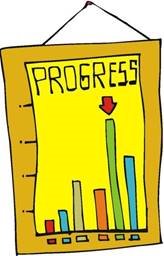 What was the notoriously busy Times Square missing?
What was the notoriously busy Times Square missing?
a) people
b) snow
c) policemen
d) skis
5. What was a remarkable sight to see on this day?
a) Central Park Zoo’s penguins
b) people skiing on Broadway
c) Transatlantic flights landing in Times Square
d) the deserted theatres on Broadway
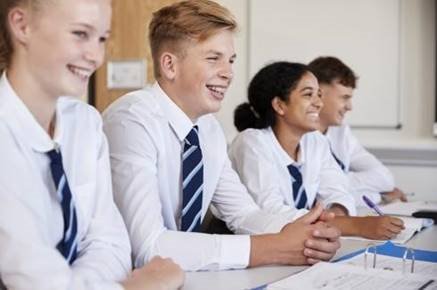
II. LISTENING COMPREHENSION TASKS
In the process of learning a foreign language, listening as a type of speech activity is the purpose and means of teaching ESL, it serves to achieve practical, educational, developmental and educational goals of learning. Listening is the purpose of learning. Students must understand the content of the audio text when it is presented once. Texts usually contain a number of unstudied words. Students must learn to guess the meaning of unknown words by the context and sound form of these words, and to understand the general meaning of the message, ignoring irrelevant information.
Assessment of listening skills can be oral or written, individual or frontal, monolingual or bilingual, using technical means. For example, the control of comprehension of the listened text can be carried out by its translation in a foreign or native language orally or in writing. Here it is important to consider the level of speaking and spelling skills: students can fully understand the text, but can’t speak or spell enough to be able to explain orally or in writing the content of the text in a foreign language. In this case, the text is translated into the native language. In addition to the translation, assessment can be done by giving answers to questions, making a plan for the text, presenting the content in own words and other tasks.
Task 1. Sue Bailey
Sue Bailey is a 17-year-old school girl. Last summer she worked as a "postie". This is how she described her job.
I can’t remember who or what inspired me to apply for a summer job at the Post Office. Fresh air, interest in local geography, love of dogs? No, I was just desperately short of money. "Well done, young lady, you get the good-looking one," was how my supervisor jokingly introduced me to Clive, who was to give me a brief training course. But Clive did his best to ignore me.
He was a fitness fanatic. He cycled impatiently through the streets of Cambridge, his back in the air, turning corners by putting his leg out and scraping his boots along the road. For me, just getting on the post bike was a nightmare. The bikes were enormous and besides there was a post sack on the front, riding the thing felt like walking slowly in concrete shoes.
If being Clive’s pupil was bad, it was nothing compared with the horrors of going solo. Clive did an entire delivery round without getting off his bike. On my first solo round, I destroyed a miniature stone wall, scratched a parked Mercedes and ran over the paw of a deaf dog. I decided that in future I would leave my bike on the pavement and walk to the house. This meant that I became the victim of gangs of kids half my size that nicked the bike and rode it up and down the street.
Then there was the incident: gangs of builders who whistled and shouted as soon as they saw me coming. And, of course, there were dogs. What is it that makes sweet puppies try hard to imitate Rottweilers when they hear a postie coming? Dogs appeared as soon as they heard me open the gate. Once I almost fainted when my path to the door was suddenly cut off by a gigantic Dobermann. Sometimes I stood in the road shouting and waving till the dogs’ owners came to the fence.
It wasn’t just dogs whose natures changed fast at the sight of a postie. The friendliest people showed the dark sides of their personalities when I delivered The Sun’s bingo cards. If I forgot to deliver one, someone could lose the chance to win a sexy Mediterranean cruise. And sometimes there were old women waiting for me on the staircases of their flats trying to bribe me for a second "free" bingo card.
I learned that people expect a lot from their posties. Although they don’t believe it, the average postie doesn’t know your exam results a week in advance. They also don’t know where to deliver your letters unless you have a number on the door. And as far as the bingo cards go – hope the Dobermann choked on them!
Task1. Point out if the statement is true (T) or false (F).
1. Sue studied at school.
2. Sue studied at the University.
3. Sue loved being in fresh air, that’s why she applied for this job.
4. Clive led brief training courses for the girl.
5. Sue liked going along the streets with Clive.
6. Sue liked going along the streets alone.
7. On her first delivering Sue ran into a big expensive car.
8. That summer Sue was 18 years old.
9. Sometimes young men tried to bribe the girl for a second "free" card.
10. The postie should always know the results of the exams.
Task 2. Point out the right answer.
1. What inspired Sue to look for a summer job?
a) fresh air
b) 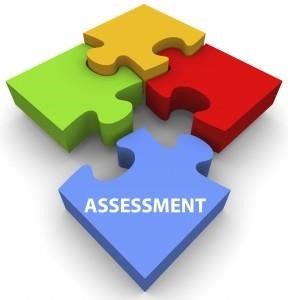 interest in local geography
interest in local geography
c) lack of money
d) love of dogs 2. Who was Clive?
a) her teacher
b) her friend
c) her fellow-worker
d) her supervisor
3. What was Clive’s attitude to Sue?
a) he liked her
b) he took no notice of her
c) he fell in love with her’
d) he liked her way of riding 4. What was Clive fond of?
a) he liked sport
b) he liked his job
c) he liked reading newspapers and magazines
d) he liked Sue
5. Why was Sue afraid of riding a bicycle?
a) because of hard traffic
b) because of the size of the bicycle
c) because of dogs
d) because she was afraid of high speed
6. In what way did Clive deliver the post?
a) he threw it out from the bicycle
b) he brought it to the door
c) he passed it with the gangs of kids
d) he left it on the pavement
7. In what way did Sue deliver the post?
a) she threw it out from the bicycle
b) she brought it to the door
c) she passed it with the gangs of kids
d) she left it on the pavement
8. Why was she standing at the gates sometimes?
a) she was afraid of dogs
b) she was afraid that her bicycle would be stolen
c) she was afraid of the gang of builders
d) she was afraid of the gang of kids
9. What do "Sun’s bingo cards" mean in this text?
a) a local newspaper
b) a popular magazine
c) a poster
d) a lottery
10. Why did people show the darkest sides of their nature?
a) they didn’t like the girl
b) they wanted one more journal
c) they wanted one more card
d) they didn’t like the way the girl serves
Task 2. The Christmas Man
Last Christmas was a very difficult time for me. My family and all of my close friends were back home in Florida, and I was all alone in a rather cold California. I was working too many hours and became very sick. I was working a double work at the Southwest Airlines ticket counter, it was about 9:00 P.M. on Christmas Eve, and I was feeling really miserable inside. There were a few of us working and very few customers waiting to be helped. When it was time for me to call the next person to the counter, I looked out to see the sweetest-looking old man standing with a stick. He walked very slowly over to the counter and in the weak voice told me that he had to go to New Orleans. I tried to explain to him that there were no more flights that night and that he would have to go in the morning. He looked so confused and very worried. I tried to find out more information by asking if he had a reservation or if he remembered when he was supposed to travel, but he seemed to become more confused with each question. He just kept saying,’ She said I have to go to New Orleans.’
After much time, I was able to find out that this old man was dropped off at the curb on Christmas Eve by his sister-in-law and told to go to New Orleans, where he had family. She had given him some cash and told him just to go inside and buy a ticket. When I asked if he could come back tomorrow, he said that she was gone and that he had no place to stay. He then said he would wait at the airport until tomorrow. Naturally, I felt a little ashamed. Here I was feeling very sorry for myself about being alone on Christmas, when this angel named Clarence MacDonald was sent to me to remind me of what being alone really meant. It broke my heart. Immediately, I told him we would get it all right, and our Customer Service agent helped to book him a seat for the earliest flight the next morning. We gave him the senior citizensfare, which gave him some extra money for travelling. About this time he started to look very tired, and when I stepped around the counter to ask him if he was all right, I saw that his leg was wrapped in a bandage. He had been standing on it that whole time, holding a plastic bag full of clothes.
I called for a wheelchair. When the wheelchair came, we all stepped around to help him in, and I noticed a small amount of blood on his bandage. I asked how he hurt his leg, and he said that he had just had an operation and an artery was taken from his leg. Can you imagine? This man had had heart operation shortly afterward, was dropped off at the curb to buy a ticket with no reservation to fly to New Orleans alone! I never really had a situation like this, and I wasn’t sure what I could do. I went back to ask my supervisors if we could find a place for him to stay. They both said yes, and they obtained a hotel voucher for Mr. MacDonald for one night and a meal ticket for dinner and breakfast. When I came back out, we got his plastic bag of clothes and stick together and gave the porter a tip to take him downstairs to wait for the airport bus. I bent down to explain the hotel, food and route again to Mr. MacDonald, and then patted him on the arm and told him everything would be just fine.
As he left, he said,’ A, Thank you’, bent his head and started to cry. I cried too. When I went back to thank my supervisor, she just smiled and said, ‘AlI love stories like that. He is your Christmas Man. ‘
Task 1. Point out if the statement are true (T) or false (F).
1. The incident happened at 9 p.m. at the Northwest Airlines.
2. The weather in California was rather cold at that time and she the lady tired of it.
3. The entire lady’s family was in Florida.
4. The old man was going home after a visit to his brother.
5. His brother lived with his family in New Orleans.
6. There were not very many customers at the counter.
7. The Customer services reserved the old man a ticket for the earliest flight next morning.
8. The lady noticed that his leg was broken and there was a spot of blood on it.
9. Mr. MacDonald had a big woolen bag of clothes and a stick with him.
10. It found out that the man had a heart operation and an artery had been taken from his leg.
Answer the questions on the text:
1. Why was that Christmas very hard for the lady?
2. Why did the lady give a tip to the porter?
3. What did she notice when she went out of the counter?
4. Who helped the old mad to arrange everything with the tickets and the hotel?
5. Why couldn’t the old man come back the next day?
6. The lady was working for too many hours and was sick of it, wasn’t she?
7. Who was the person who dropped the old man off on Christmas Eve?
8. Why did the lady call the wheelchair?
9. Where did the old man’s family live?
10. What kind of operation did Mr. Macdonald have?
Task 3. The Practical Princess
Princess Bedelia was as lovely as the moon shining upon a lake. She was as graceful as a cat. And she was also very practical, always ready to take actions instead of dreaming.
When she was born, three fairies came to her cradle to give her gifts as it was usual in that country. The first fairy gave her beauty. The second one gave her grace. But the third one, who was a wise old creature, said, "I’ II give her common sense".
"I don’t think much of that gift", said King Ludwig. "What is good in common sense for a princess? All she needs is charm".
But when Bedelia was eighteen years old, something happened that made king change his mind. A dragon moved into the neighbourhood. He settled in a dark cave on the top of mountain, and the first thing he did was to send a message to the king. "I must have a princess to eat up", the message said, "or I shall breathe out my fire and destroy the kingdom".
Sadly, Kind Ludwig called together his councilors, chosen to give advices, and read them the message. "Perhaps", said the Prime Minister, "we had better send for a knight to kill the dragon. That is what is generally done in these cases".
"I am afraid we haven’t time", answered the king. The dragon has only given us time until tomorrow morning. There is no use in it. We shall have to send him the princess".
Princess Bedelia had come to the meeting because, as she said, she liked to mind her own business, and this was certainly her business.
"That may be so", said her father, "but if we don’t send you along, he’ll destroy the kingdom".
"Right!" said Bedelia. "I see I’ll have to deal with this myself". She left the room in which the council sat. She got the largest brightest one of her state dresses, filled it with straw, and into the center of the bundle she packed about a hundred pounds of gunpowder. She got two strong young men to carry it up the mountain for her. She stood in front of the dragon’s cave and called: "Come out! Here’s the princess!"
The dragon appeared looking out of the darkness with interest. Seeing the bright dress covered with gold and silver embroidery, and hearing Bedelia’s voice, he opened his mouth widely. At once, at Bedelia’s signal, the two young men threw the dress right down the dragon’s throat. Bedelia threw herself flat on the ground, and the two young men ran.
There was a great explosion inside the dragon. Bedelia got up, dusting herself off. "Dragons", she said "are not very bright".
She left the two young men sweeping up the pieces, and she went to the castle to have her geography lesson, for as you know, she was very practical!
Task 1. Point out if the statement is true (T) or false (F).
1. Bedelia was very beautiful.
2. The dragon came to their country because he heard about Bedelia’s beauty.
3. The Dragon wanted to eat up a princess.
4. The king wasn’t glad with the third fairy’s gift.
5. The dragon settled under a big mountain.
6. The dragon promised to burn the kingdom down.
7. It was Bedelia’s business to come to the meeting.
8. Bedelia asked three young men to go with her and to kill the dragon.
9. The young men were to carry gunpowder to the mountain.
10. Bedelia said that the dragons were very dangerous.
Answer the questions on the text:
1 What had happened when Bedelia was a baby?
2. What do the following words mean: "She was very practical"?
3. What had happened when Bedelia was 18?
4.  What was in the message?
What was in the message?
5. Why did the king gather his councilors?
6. Why did Bedelia come to the meeting?
7. What did the Prime Minister suggest?
8. What was Bedelia’s plan?
9. Why was the dragon so much surprised?
10. Why did Bedelia go back to the castle?
Task 4. Memories of Christmas
For me, Christmas always began in the middle of the cold, windy month of November. My sister, Alison, and I sat down in front of the fire and wrote a letter to Father Christmas telling him about all the presents we wanted. We solemnly addressed our letters to ‘Father Christmas, the North Pole’, before sending them up the chimney.
With December our excitement grew each day- as we opened the advent calendar, Christmas cards arrived in the post, the nativity play at our school, Christmas lights in the streets, the town carol service. Enough snow to make snowmen, build igloos and to have glorious snowball fights in the school playground.
On Christmas Eve the whole family helped to decorate the house, put up the Christmas tree and the decorations and blow up the balloons. Then, in the afternoon, when Auntie Kathleen and my two cousins arrived, everything was ready. Before we went to bed, we left some brandy and mince pies for Father Christmas and then put our stockings at the end of our beds. We tried to stay awake as long as possible to see Father Christmas but the next thing we knew it was morning. Christmas morning!
At the bottom of the bed was the stocking, now full of all kinds of small presents and sweets, and at the bottom a chocolate sixpence and a tangerine. Christmas morning was bright and sunny and after church my cousin David and I went out into the garden to play with our new presents. Lunch was always late, but what a lunch! Roast turkey with all the vegetables followed by a Christmas pudding and brandy butter. When we pulled the crackers, the dog barked; we took out the plastic toys, laughed at the jokes, put on the silly paper hats and laughed again.
After lunch the adults slept on the sofas in front of the Queen’s speech on television whole we all played cards. Then we had tea with a huge Christmas covered with snowmen and polar bears. It didn’t seem possible but we carried on eating. By bedtime all the children were exhausted. As soon as we turned off the light, we all fell into a deep contented sleep.
Task 1. Point out if the statement is true (T) or false (F).
1. On Christmas the whole family gathered together.
2. Children didn’t do any preparations to Christmas.
3. They left some wine and sweets for Father Christmas. 4. They left some wine and sweets for the next morning.
5. Christmas morning was bright and snowy.
6. In the morning children ran to the church.
7. In the morning children ran to the yard.
8. Children decided to wait for Father Christmas.
9. Children sent their letters to Father Christmas.
10. Every year children took part in school Christmas performances.
Answer the questions on the text:
1. When did Christmas begin for the boy?
2. What did the children do before the Christmas?
3. How did the family prepare for the holiday?
4. Who came to visit them in the afternoon?
4. Why did the children leave food before going to bed?
5. Where did they put their stockings?
6. What was at the bottom of the stocking?
7. In the morning all the family went to the church, didn’t they?
8. What did the children find inside the crackers?
9. What did the adults do after lunch?
10. Why were the children exhausted?
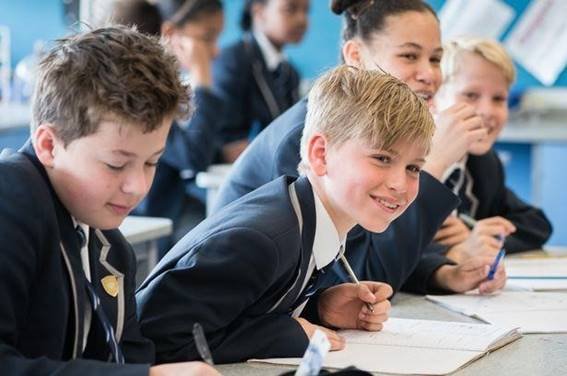
III. GRAMMAR TASKS
The main task of teaching grammar is to teach students practically to use it for communicative purposes, and to master the ways to change word forms and combine words in a sentence - to master grammar skills. When selecting grammatical phenomena for studying, it is necessary to take into account not only the principle of learning material from easy to difficult and memorizing lexical stock, which allows the development of automatisms, but also the need for communication, i.e. the need to study primarily grammatical phenomena for practical use of language. It is necessary to distribute grammatical material for such types of speech activity as speaking, reading, listening, writing.
ESL students must have theoretical knowledge of:
• Morphological elements of word structure (morphemes, affixes, etc.);
• Grammatical categories (number, gender, case; tense, aspect and state of the verb, etc.);
• Lexical and grammatical classes of words (parts of language);
• Syntactic structures (communicative and structural types of sentences);
• Transformation processes (nominalization, verbalization, etc.);
• Types of syntactic communication (control, coordination, fitting, etc.)
And practical knowledge such as:
• how to give advice, order, ask;
• how to tell about past events, daily affairs or plans for the future;
• how to compare things, phenomena;
• express confidence, etc.
In addition to awareness of language structure, an important role is played by the automation of grammatical connections, which is a prerequisite for proper communication in teaching grammar.
 Present Tenses
Present Tenses
A: Put in the present continuous form of the verb in brackets.
1. Please be quiet. I _______________ (try) to read my book.
2. I _______________ (not/use) the computer at the moment so you can use it.
3. Mary is ill so Sue _______________ (teach) her 1essons today.
4. Excuse me, I _______________ (look) for a hotel. Is there one near here?
5. _______________ (you/wait) for someone?
6. Jack, you are very careless. You _______________ (always/forget) to do your homework!
7. The cost of living _______________ (rise) very fast. Every year things are more expensive.
8. What _______________ (you/do)? I _______________ (clean) my shoes.
9. Why _______________ (not/wear) shorts? It’s so hot today.
10. The neighbours are so noisy! They _______________ (always/argue) 1oudly.
B: Put the verb into the correct form, present continuous or present simple.
1. I _______________ (not/belong) to this particu1ar government committee.
2. Hurry! The bus _______________ (come). I
_______________ (not/want) to miss it.
3. Gregory is a vegetarian. He _______________ (not/eat) meat.
4. I _______________ (1ook) for the manager. I can’t find him anywhere.
5. We are successful because we _______________ (take) the time to ta1k to our customers.
6. John _______________ (deal) with all the enquiries about sales.
7. At the moment we _______________ (make) a training video for Siemens.
8. _______________ (you/know) what Mr Briceson
_______________ (do)? He is not in his office.
9. I _______________ (apply) for a job in the sales department, but I don’t know if I will be successful.
It _______________ (depend) on whether or not they have any vacancies.
10. Unemployment _______________ (fa1l) and is now down to
5.6%.
11. Jane is doing some research in the library. She needs it for a book she _______________ (write).
12. While Anna is away on holidays, Matt _______________
(work) in her office.
13. He _______________ (teach) French and German at University and _______________ (learn) Greek.
14. There _______________ (be)two flights to Honduras this afternoon. The British Airways flight _______________ (1eave) at 13:00 and _______________ (arrive) at 22:00.
15. Inflation _______________ (rise) at a rate of 2% per annum.
C: Put the verb in brackets into the present simple or the present continuous.
1. She always _______________ (remember) my birthday.
2. Mr Brown _______________ (work) in a supermarket.
3. I _______________ (work) in this factory until I find a better job.
4. Look! It _______________ (snow).
5. Can you hear those girls? What _______________ (they/ta1k) about?
6. _______________ (you/know) Helen?
7. We _______________ (never/go) to work by tube. It is too busy.
8. When I’m in Paris I _______________ (usually/stay) in the Hotel du Pont, but this time I _______________ (stay) in the more expensive Hotel Notre Dame.
9. Ruth _______________ (be) a vegetarian. She
_______________ (not/eat) meat or fish.
10. My father _______________ (be) an engineer, but he _______________ (not/work) right now.
11. _______________ (you/believe) in ghosts?
12. My parents _______________ (live) in Sydney. Where _______________ (your parents/1ive)?
13. We _______________ (own) two cars, an estate car and a sports car.
14. Can you drive? No, but I _______________ (learn) at the moment.
15. Look! That woman _______________ (try) to steal that man’s wallet.
16. The River Nile _______________ (f1ow) into the
Mediterranean.
17. _______________ (you/like) Bon Jovi?
18. I _______________ (get) thirsty. Let’s get something to drink.
19. Those f1owers _______________ (smell) lovely. What are they?
20. Jane _______________ (repair) her bike. She
_______________ (know) exactly what to do.
Past Tenses
 A: Put the verb in the past simple.
A: Put the verb in the past simple.
1. Tom _______________ (not/come) to the office yesterday because he
_______________ (be) ill.
2. She _______________ (not/read) the book because she _______________ (not/be) very interested in that author.
3. The students _______________ (not/finish) their group project because they _______________ (run out) of time.
4. We _______________ (not/eat) anything for breakfast because we _______________ (be) in a hurry.
5. Mary _______________ (not/catch) the train to Mexico City because she _______________ (arrive) at the station too late.
B: Put the verb in the correct form: past simple or past continuous.
1. I _______________ (dream) when the alarm clock
_______________ (go off).
2. They _______________ (wait) for me when I
_______________ (arrive).
3. The phone _______________ (ring) while I _______________ (have) a shower.
4. We _______________ (not/go out) last Sunday because it _______________ (rain).
5. I _______________ (see) Kim at the party. She
_______________ (wear) a new dress.
6. I _______________ (break) a bowl this morning. When I
_______________ (wash) the dishes it just _______________ (slip) out of my hand onto the floor!
7. When he _______________ (carry) the table, he
_______________ (feel) a sharp pain in his back.
8. Sarah _______________ (go) down the stairs when the lights _______________ (go out).
9. We _______________ (watch) TV when someone _______________ (come) to the door and _______________ (knock) very loudly.
10. What _______________ (you/do) at this time yesterday? Oh, I _______________ (prepare) the dinner.
11. I _______________ (fall) asleep while I _______________ (watch) television.
12. At 12:45 yesterday, Mr Alright _______________ (see) a client in his office.
C: Put the verb in the most suitable form, present perfect simple or continuous.
1. You look tired. _______________ (you/study) hard?
2. Mr Brown is new here, isn’t he? How 1ong _______________ (he/work) for the company?
3. I _______________ (lose) my wallet. Have you seen it anywhere?
4. I _______________ (read) the magazine you lent me, but I _______________ (not/finish) yet.
5. _______________ (you/hear) the bad news? Simon
_______________ (break) his leg!
6. How many articles _______________ (you/write)?
7. What _______________ (you/do)? I _______________ (wait) for you for an hour!
8. Bob and his friends _______________ (play) golf since this morning.
9. I _______________ (know) Louise for ten years.
10. Mr Brown _______________ (mark) the exams all morning, but he _______________ (not/read) them all.
D: Put in the correct verb form: present perfect or past simple.
1. How long _______________ (she/study) German?
2. When _______________ (he/begin) to study Business Administration?
3. Who _______________ ( write ) the play Dancing at Lughnasa.
4. _______________ (you/visit) any museums when you were in
Sofia.
5. Henry has a perfect school record. He _______________
(not/be) sick this year.
6. Prices _______________ (go) up. Things are much more expensive this week.
7. What _______________ (happen) to you. I waited all afternoon for you.
8. Marilyn _______________ (have) an accident. She was running for the bus when she _______________ (fall) down.
9. Mr Arnold _______________ (win) the Exporter of the Year prize twice. His brother _______________ (win) it four times already.
10. Alfred Hitchcock _______________ (make) lots of films in his long career.
11. I _______________ (just/remember) something.
12. _______________ (you/reply) to Mr Aston’s letter yet?
13. Mr Miller _______________ (work) in a travel agency for years. Then he gave it up.
14. Melanie lives in Bucharest. She _______________ (live) there all her life.
15. My uncle died in 1960. I _______________ (never/have) the opportunity to meet him.
 Future Tenses
Future Tenses
A: Complete the following sentences choosing the correct future tense form for the verb in brackets.
1. The train __________ (to arrive) at 12:30.
2. We __________ (to have) dinner at a seaside restaurant on Sunday.
3. It __________(to snow) in Brighton tomorrow evening.
4. On Friday at 8 o’clock I __________ (to meet) my friend. 5. Paul __________ (to fly) to London on Monday morning.
6. Wait! I __________ (to drive) you to the station.
7. The English lesson __________ (to start) at 8:45.
8. Are you still writing your essay? If you __________ (to finish) by 4pm, we can go for a walk.
9. I __________ (to see) my mother in April.
10. Look at the clouds – it __________ (to rain) in a few minutes.
11. When they __________ (to get) married in March, they __________ (to be) together for six years.
12. You’re carrying too much. I __________ (to open) the door for you.
13. Do you think the teacher __________ (to mark) our homework by Monday morning?
14. When I __________ (to see) you tomorrow, I __________ (show) you my new book.
15. After you __________ (to take) a nap, you
__________ (to feel) a lot better
16. I’m sorry but you need to stay in the office until you __________ (to finish) your work.
17. I __________ (to buy) the cigarettes from the corner shop when it __________ (to open).
18. I __________ (to let) you know the second the builders __________ (to finish) decorating.
19. Before we __________ (to start) our lesson, we __________ (to have) a review.
20. We __________ (to wait) in the shelter until the bus __________ (to come).
21. I’m very sorry Dr. Jones __________ (not be) back in the clinic until 2pm.
22. This summer, I __________ (to live) in Brighton for four years.
23. I don’t think you __________ (to have) any problems when you land in Boston.
24. The baby should be due soon, next week she
__________ (to be) pregnant for nine months.
25. By the time we get home, they __________ (to play) football for 30 minutes.
26. In three years I __________ (to live) in a different country.
27. When you __________ (to get) off the train, I
__________ (to wait) for you by the ticket machine.
28. __________ (to take) your children with you to France?
29. This time next week I __________ (ski) in
Switzerland!
30. Now I __________ (to check) my answers.
Conditionals
![]() A: Conditional 1. Put the verbs in brackets into the / a correct form.
A: Conditional 1. Put the verbs in brackets into the / a correct form.
1. If you ______________
(visit), we ______________ (go) to the theatre.
2. If it ______________ (rain), we ______________ (eat) inside.
3. If you ______________ (not / pass) the exam,
______________ (you / take) it again?
4. We ______________ (lose) our way if we ______________
(not / stay) on the main road.
5. He ______________ (not / catch) the plane if he
______________ (not / hurry)!
6. I ______________ (telephone) if I ______________ (need) any help.
B: Conditional 2. Put the verbs in brackets into the / a correct form.
1. If you ______________ (do) more exercise, you
______________ (feel) better.
2. What ______________ (you / do) if you ______________ (win) a million pounds?
3. If someone ______________ (come) in here with a gun, I______________ (be) very frightened.
4. If I ______________ (be) you, I ______________ (learn) French before travelling to France.
5. I’m sure Fred ______________ (understand) if you
______________ (explain) the situation to him.
6. My husband ______________ (be) very upset if I ______________ (lose) my wedding ring.
C: Conditional 3. Put the verbs in brackets into the / a correct form.
1. If Kim ______________ (not / miss) her flight, she ______________ (not / met) her future husband Tom!
2. I ______________ (not / fail) the exam if I ______________ (work) harder.
3. If he ______________ (drive) more carefully, he
______________ (not / have) an accident.
4. They ______________ (win) the race if the weather conditions ______________ (be) better.
5. What ______________ (you / do) if you ______________
(see) the thief steal the jewels?
6. If we ______________ (buy) a lottery ticket, we ______________ (win) a fortune!
 Infinitive/Gerund
Infinitive/Gerund
A: Put in the infinitive or the ing form of the verb in brackets.
1. I was overjoyed
_____________(see) you at the
party.
2. The nuclear station is not likely _____________(blow up) although it may shut down.
3. Janice was sad _____________(see) such poverty when she visited India.
4. It’s possible _____________(work) all day without being disturbed.
5. You are free _____________(leave) any time you want to.
6. You should be able to practise _____________(sing) every day.
7. Scientists are hoping _____________(discover) a new chemical element.
8. I don’t mind people _____________(ask) me questions.
9. He works too slowly _____________(be) any use to me.
10. He can ‘t stand _____________(wait) for other people.
11. I guess there is no point _____________(sit) around here any longer.
12. The lemonade was cool enough for us _____________(drink).
13. Please stop _____________(interrupt) me when I am trying to explain something.
14. I’ve forgotten _____________(buy) flowers for my girlfriend’s birthday.
15. I simply can’t afford _____________(waste) time trying to explain this to you.
16. The thief admitted _____________(enter) the house but says he didn’t take anything.
17. I don’t really fancy _____________(spend) my holidays in Spain.
18. I apologised to her but she refused _____________(accept) it.
19. He offered to help me _____________(repair) my motorcycle.
20. Why does John keep _____________(write) to you?
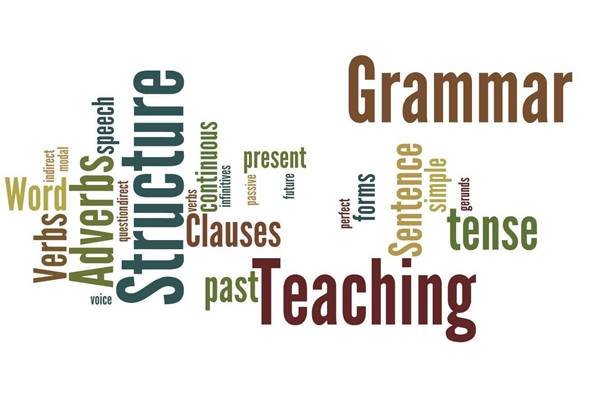
IV. SPEAKING TASKS
A foreign language as a subject is designed to teach students how to use language and how to speak fluently. Oral speech is a means of communication by which information is obtained in the process of listening, transmission of information during the speech, exchanging information in conversation, i.e. in monologue and dialogic speech.
Assimilated by means of oral speech, educational material is later involved in reading and writing. Criteria for assessment of academic achievements in speaking are clearly determined by the Ministry of Education and Science of Ukraine. According to the "European guidelines for language education" level of foreign language proficiency of secondary school students at the end of the eleventh class corresponds to the level of B1+.
So, in what ways can you test students’ ability to communicate in a foreign language, what methods to use? First of all, it is important for the teacher to find as many options as possible for testing and evaluating oral speech. Success of any learning strategy and getting high results depends on what topics are of great interest to students, about what they read, listen, observe, and want to talk. The method of control should increase motivation of students, influence the organization of favorable conditions for any exam, final or current assessment, monitoring, etc.
![]() Animals Conversation Questions a) What role do animals play in law enforcement?
Animals Conversation Questions a) What role do animals play in law enforcement?
b) Could a chihuahua be a police dog?
c) Should animals wear clothes?
d) If you had to be raised by animals in the wild, what animals would be the best parents?
e) Can animals be gay?
f) If you could be an animal, what animal would you choose to be and why?
g) What are the pros and cons of owning a pet?
 Beauty Conversation Questions
Beauty Conversation Questions
a) If you could change one thing about your appearance, what would it be?
b) What do you find most attractive in people of the opposite sex?
c) Would you buy a Barbie Doll for your daughter?
d) What do you think of tattoos?
e) Should voluntary plastic surgery be banned?
f) Can aging be prevented or slowed?
g) Do you read beauty magazines?
h) What’s your opinion of beauty pageants like Miss Universe?
i) How have our ideas about beauty changed historically?
What does this tell us?
j) Are people in your country fashionable?
k) What are some common fashion faux-pas people make?
l) “No Make-Up Day”: would this be a good idea?
m)How important is it for your partner to be beautiful?
n) What message does the media send to young people about beauty?
o) What message is more important to send to overweight youth: ‘be happy with yourself’ or ‘lose weight’?
 Education Conversation Questions
Education Conversation Questions
a) Is it easy to get a job after graduation in your country?
b) Should university education should be free?
c) How can educators and parents promote creativity in children?
d) How would you compare the quality of education in your country to other countries?
e) What makes a good teacher?
f) Do you prefer public or private schools?
g) Should evolution or creationism be taught at schools?
h) Do you have any funny school stories?
i) Who should be responsible for teaching sexual education to children and teenagers?
j) Is a university degree enough in your country to get a good job?
k) Is ‘the student life’ the best time in people’s lives?
l) Should researchers at universities also be required to teach classes?
m)![]() What is the most important subject(s) in school?
What is the most important subject(s) in school?
Entertainment Conversation Questions
a) Who is your favorite celebrity?
b) What is your favorite movie?
c) What genre of books or movies do you enjoy?
d) What is your favorite science fiction movie about the future?
e) Do you prefer to watch TV or use the Internet?
f) Will TV exist in 20 years?
g) Do you like reality TV programs?
h) What do you think of rap music?
i) Why do many celebrities have drug and alcohol problems?
j) Do you read tabloid magazines?
k) What do you think of the paparazzi? How can they be controlled?
l) What’s your opinion of video games? What are the pros and cons of letting children play video games?
m)Do video games make people, particularly children, violent?
Emergency Conversation Questions
a) What is a natural disaster? What are some kinds of natural disasters?
b) What are some examples of non-natural disasters?
c) Have their been any major disasters in your area?
d) What are some major disasters that you can remember?
e) Have you ever been seriously lost?
f) If you had one minute to leave your home, what would you take with you?
g) If you lost everything, how would you rebuild your life?
h) What would you do if you lost all of your possessions?
i) Have you ever been in a fire?
j) Would you rather burn or freeze to death?
k) Could you live in an area that could have a natural disaster at any moment?
 Science & Religion Conversation Questions
Science & Religion Conversation Questions
a) What are some limitations of science?
b) Is a scientific explanation of life depressing for you?
c) Have you ever witnessed a miracle or something supernatural?
d) Do you believe in evolution?
e) “The Survival of the Fittest”: How important are survival skills in our society? Does the term “Survival of the Fittest” still apply?
f) Is Darwin’s “Natural Selection” still happening?
g) Is artificial insemination against human nature and evolution?
h) Do you believe in aliens?
i) Are there any strange religious groups in your country?
j) Do you think the end of the world is near?
k) Nature vs. Nurture: Is intelligence rooted in genetics?
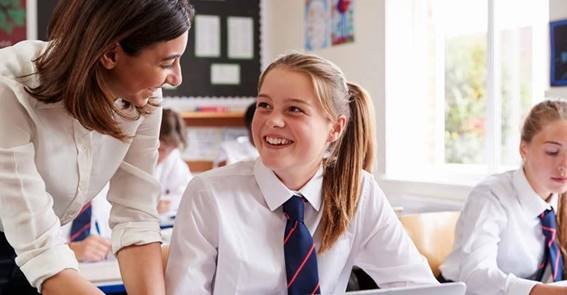
Summary
Assessment in education, is the process of gathering, interpreting, recording and using information about pupils responses to an educational task. It helps us distinguish between teaching and learning. The primary assessment is to foster learning of worthwhile academic content for all students. ESL teachers use assessment results in a formative way to determine how well they are making instructional goals and how to alter instruction so that goals can be better met.
Assessment can be divided into three stages: Diagnostic Assessment, Formative Assessment and Summative Assessment.
Diagnostic Assessment establishes the “Starting point” of the student’s understanding. Formative Assessment provides information to help guide the instruction throughout the unit and summative assessment informs both the student and the teacher about the level of conceptual understanding and performance capabilities that the student has achieved
References
1) Erben Tony. Teaching of English Language Learners Through Technology / T. Erben, 2008. 240 p.
2) James E. Alatis. Language Teaching, Testing, and Technology: Lessons from the Past with a View Toward the Future / Alatis James E. Georgetown University Press,
2009. 411 p.
3) Jeremy Harmer. The Practice of English Language Teaching / Longman Handbooks for Language Teachers, 2001.-370.
4) Raymond Murphy. English Grammar in Use with
Answers: Reference and Practice for Intermediate Students, 2010.- 289.
5) Yong Zhao. Research in Technology and Language Education: Developments / Zhao Yong. IAP, 2005. 457 p.

про публікацію авторської розробки
Додати розробку
